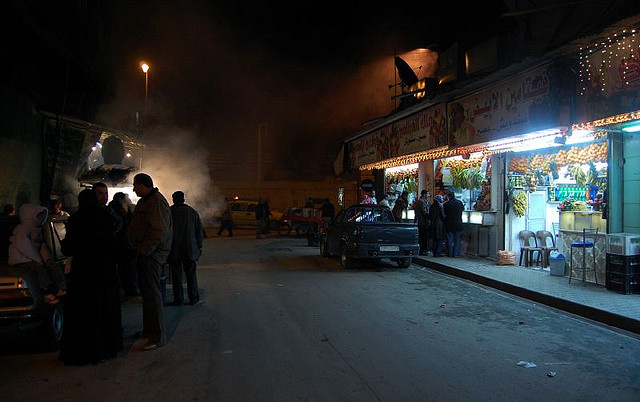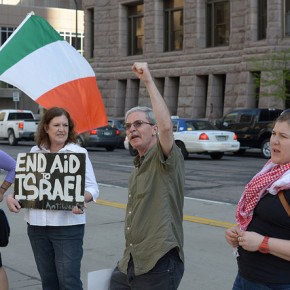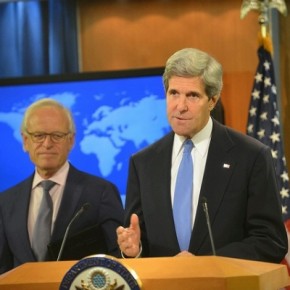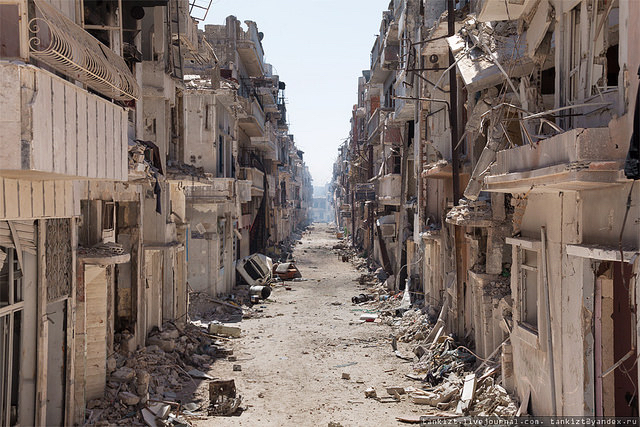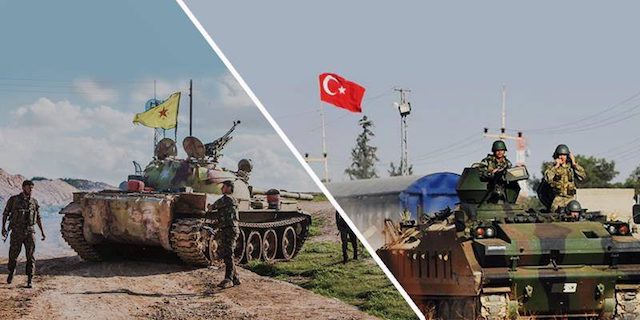We’re just about at war. ABC’s Alexander Marquart tweeted that the Obama Administration is pressuring U.N. inspectors, who are investigating reports of a chemical weapons attack by the Assad regime, to leave Syria as soon as possible. We should take that as evidence that the U.N.’s fact-finding mission is over.
Given this context, it’s worth thinking about journalists currently working in Syria. As the crisis enters its next phase, we’re going to be relying on them more than ever. Francesca Borri is one such correspondent. Her July feature, in the Columbia Journalism Review, dissects her profession critically:
People have this romantic image of the freelancer as a journalist who’s exchanged the certainty of a regular salary for the freedom to cover the stories she is most fascinated by. But we aren’t free at all; it’s just the opposite. […] [T]he editors back in Italy only ask us for the blood, the bang-bang. I write about the Islamists and their network of social services, the roots of their power—a piece that is definitely more complex to build than a frontline piece. I strive to explain, not just to move, to touch, and I am answered with: “What’s this? Six thousand words and nobody died?”
This is a lesson that many journalists of my generation learned from watching the news during the Iraqi Civil War. Violence sells in a way that analysis does not. Audiences are left with photo essays like this Daily Mail piece, about a weeping child soldier carrying a Kalashnikov. You’re supposed to cry along with it – and then buy more newspapers.
I was at a bar in Clifton, New Jersey, and met a young man who works at an office. Video of the fighting in Syria came on the television. He paused, before turning to me and saying in an exhausted tone, “This is horrible, I feel like humanity is regressing.” The bartender changed the channel to something less intense: reality TV on the Bravo! network.
Like Borri says, we’re all so obsessed with writing about “the bang-bang” that we’ve forgotten to produce news that isn’t tabloid. As a result, this man was deprived of the tools necessary to fully navigate what is going on. She rightly calls it a failure of journalism:
The truth is, we are failures. Two years on, our readers barely remember where Damascus is, and the world instinctively describes what’s happening in Syria as “that mayhem,” because nobody understands anything about Syria—only blood, blood, blood.
She also touches on problems with compensation for wartime journalists, which are allegedly necessitated by the potential for awards and exposure:
But whether you’re writing from Aleppo or Gaza or Rome, the editors see no difference. You are paid the same: $70 per piece. Even in places like Syria, where prices triple because of rampant speculation. So, for example, sleeping in this rebel base, under mortar fire, on a mattress on the ground, with yellow water that gave me typhoid, costs $50 per night; a car costs $250 per day. So you end up maximizing, rather than minimizing, the risks.
Not to mention gender politics, and how they affect female journalists:
One recent evening there was shelling everywhere, and I was sitting in a corner, wearing the only expression you could have when death might come at any second, and another reporter comes over, looks me up and down, and says: “This isn’t a place for women.” What can you say to such a guy? Idiot, this isn’t a place for anyone. If I’m scared, it’s because I’m sane.
Borri ends on a necessary note:
Because really the only story to tell in war is how to live without fear. It all could be over in an instant. If I knew that, then I wouldn’t have been so afraid to love, to dare, in my life; instead of being here, now, hugging myself in this dark, rancid corner, desperately regretting all I didn’t do, all I didn’t say. You who tomorrow are still alive, what are you waiting for? Why don’t you love enough? You who have everything, why you are so afraid?
If the role of journalism is to reveal concealed truths (which still isn’t happening with Syria) Borri certainly delivers.
Photograph courtesy of Neil Hester. Published under a Creative Commons License.
